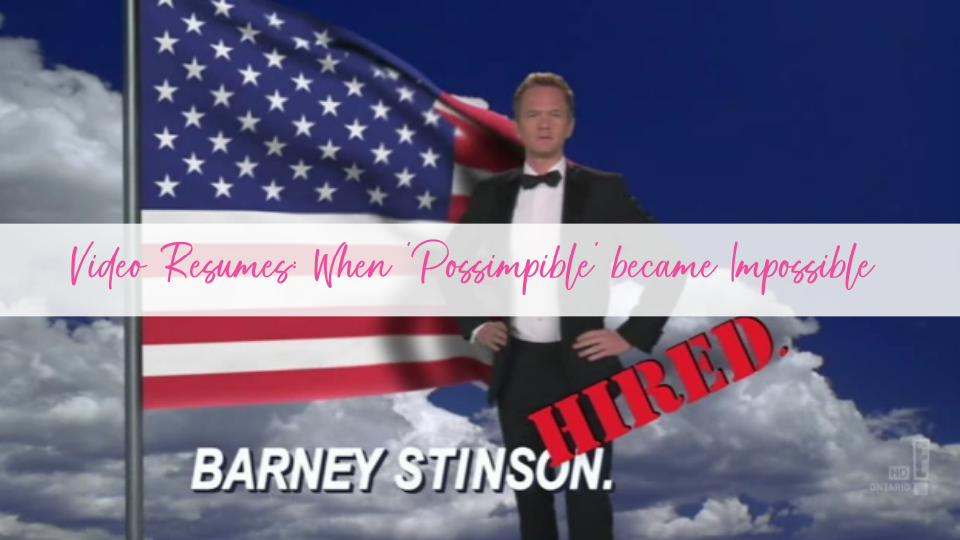Drop off your CV
We serve the global HR community through our offices located in Delhi, Hong Kong, London, New York, São Paulo and Singapore and have placed HR leaders in over 30 countries.
I first encountered the concept of a Video Resume while watching an episode of ‘How I Met Yo...

I first encountered the concept of a Video Resume while watching an episode of ‘How I Met Your Mother' in 2009. Barney Stinson, who is undeniably awesome (popular opinion), showcased a legendary video resume filled with charm, wit, and self-proclaimed awesomeness.
It led me to consider the potential of video resumes as a replacement for paper or document format resume’s. There was a time when video resumes were being considered as the next big thing in hiring and were expected to take off, however, this never happened. Over time, video resumes have become increasingly rare or hardly used. In the past 15 years, I have come across only one client who invited pre-screened candidates to record video responses to a questionnaire, but that cannot be considered a full-fledged resume. It was more of an interview.
Video resumes were considered valuable because they allowed candidates to showcase their personality, communication skills, soft skills, energy, and creativity; qualities that are challenging to convey through a traditional resume. Candidates could easily exhibit their presentation skills, public speaking abilities, and interpersonal communication. Additionally, visual elements such as body language, expressions, and gestures leave a lasting impression on employers, offering them a better understanding of a candidate's fit for the role and company culture. Employers could evaluate the candidate's confidence, charisma, and professionalism.
Why did Video Resume’s fail?
Considering rapid technological advancements, it is feasible and convenient to widely adopt video resumes. However, they present various challenges.
First and foremost is the data explosion. Imagine receiving thousands of video responses against each job posting. A company would end up spending a lot of money to store the videos. By the time they come to wiping the irrelevant data off, they would have already ended up spending millions on additional data storage. Another issue related to IT would be security. With a rise in ransomware attacks over the last two decades, a video attachment could turn out to be a ticking timebomb for your entire data infrastructure.
Unlike the traditional resume, it’s not easy to skim through an influx of video resumes. One would need to spend a lot of time in going through each resume while avoiding personal biases. This would lead to increase in manpower cost exponentially. There are many more challenges for organisations that I have not mentioned here, but I am sure you get the picture.
Now let’s discuss the challenges that video resumes create for candidates. Data privacy is a major concern and might raise a conflict with relevant data privacy laws globally. Creating a video resume necessitates access to equipment like cameras, microphones, and video editing tools. Alternatively, hiring a professional for video production can be expensive and time-consuming. A major concern with video resumes is the potential for bias in the hiring process. Candidates' appearances, accents, and non-verbal cues can inadvertently influence hiring decisions, leading to discrimination based on race, age, gender, or physical appearance.
In my opinion, traditional resumes are like trusty old landline phones—reliable, straightforward, and always there when you need them. But video resumes? Oh boy, they’re like fancy holographic smartphones that promise the world but end up confusing even the tech-savviest of us. Imagine a recruiter from India drowning in a sea of thousands of video resumes, desperately trying to find the perfect candidate. It’s like searching for a needle in a haystack, except the haystack is on fire, and the needle is doing a tap dance routine. So, to save us all from a circus of chaos, let’s keep video resumes optional. That way, we can avoid any biased judgments and maybe even spare our poor recruiters from video-induced nightmares.
If you would like to discuss the future of resumes, your next HR role or are hiring into your HR function, you can reach out to me on LinkedIn or at gy@elliottscotthr.com